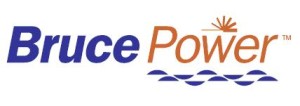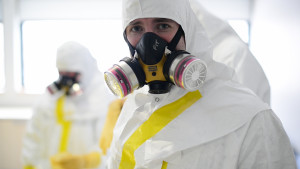The Nuclear Industry
Bruce Power Chooses Algonquin College’s Radiation Safety Program for Future Workforce Nuclear Industry Needs
 Ontario’s largest private electricity generating company has chosen Algonquin College’s Applied Nuclear Science and Radiation Safety program as one of its key feeder programs for its future workforce needs. As part of a broader plan to affiliate with specific college programs to address skilled workforce challenges, Bruce Power is partnering with four Ontario Colleges, including Algonquin’s program. Learn more about this new partnership.
Ontario’s largest private electricity generating company has chosen Algonquin College’s Applied Nuclear Science and Radiation Safety program as one of its key feeder programs for its future workforce needs. As part of a broader plan to affiliate with specific college programs to address skilled workforce challenges, Bruce Power is partnering with four Ontario Colleges, including Algonquin’s program. Learn more about this new partnership.
Nuclear is a major employer in North America
 With an increased demand for electricity and a desire to reduce smog, acid rain and greenhouse gas emissions caused by the burning of fossil fuels, many countries have been exploring nuclear technology as an option for their domestic energy production. In Canada, both the federal and provincial governments have endorsed the energy efficiency of nuclear power generation to provide a continuous and reliable source of energy for the future. In addition to power generation and medical applications, nuclear technology has a number of industrial, commercial and agricultural applications. In Ontario alone, thousands of people are employed in specialized jobs within the nuclear industry in technical, administrative, engineering, and research and development areas.
With an increased demand for electricity and a desire to reduce smog, acid rain and greenhouse gas emissions caused by the burning of fossil fuels, many countries have been exploring nuclear technology as an option for their domestic energy production. In Canada, both the federal and provincial governments have endorsed the energy efficiency of nuclear power generation to provide a continuous and reliable source of energy for the future. In addition to power generation and medical applications, nuclear technology has a number of industrial, commercial and agricultural applications. In Ontario alone, thousands of people are employed in specialized jobs within the nuclear industry in technical, administrative, engineering, and research and development areas.
Canada Leads Technology
Canada is a leader in nuclear technology having produced the world-renowned CANDU reactor that is being used to provide more energy to millions of people around the globe. Canada also provides the world with the majority of reactor-produced radioisotopes used in hospitals, and medical and research laboratories.
Nuclear Technology in the Ottawa Valley
Canadian Nuclear Laboratories (CNL), formerly Atomic Energy of Canada Limited (AECL), one of Canada’s larger crown corporations, has been operating a nuclear research reactor at Chalk River since 1957. CNL employs more than 3,000 people, including scientists, engineers, technical and skilled trades workers, and clerical, administrative and maintenance staff. All employees require radiation safety training. Algonquin College’s Applied Nuclear Science and Radiation Safety program has modelled its curriculum on the fundamental training requirements for Group 1 employees at CNL.